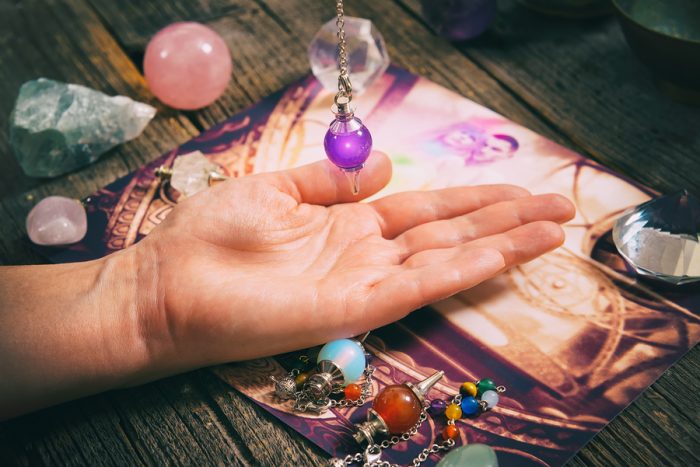Understanding the Difference Between Wet Dreams and Spiritual Marriage
Dreams have always been a subject of intrigue and mystery, often leading to various interpretations and beliefs. Among these, two concepts stand out due to their unique nature and cultural significance: wet dreams and spiritual marriage. This article aims to explore the Difference Between Wet Dreams And Spiritual Marriage, delving into their meanings, implications, and how they are perceived in different cultures.
Wet Dreams: A Biological Perspective
Wet dreams, also known as nocturnal emissions, are a natural biological process experienced by many individuals, particularly during adolescence. These dreams involve involuntary ejaculation during sleep for males and a similar experience of arousal and possible orgasm for females. Wet dreams are a part of growing up and are often linked to the body’s sexual development. They are not limited to any specific type of dream content and do not necessarily involve explicit sexual imagery.
Spiritual Marriage: A Cultural and Spiritual Interpretation
On the other hand, the concept of spiritual marriage in dreams is rooted in various cultural and spiritual beliefs. It involves the idea of being spiritually bonded or married to an entity or a being in a dream. This concept is often found in folklore, religious texts, and spiritual narratives. Unlike wet dreams, spiritual marriages in dreams are not a biological phenomenon but are interpreted as significant spiritual or symbolic events.
The Key Differences
Biological vs. Spiritual
The primary Difference Between Wet Dreams And Spiritual Marriage lies in their nature. Wet dreams are a biological process, while spiritual marriages are a cultural and spiritual experience. Wet dreams are a part of the body’s natural development, whereas spiritual marriages are deeply rooted in personal beliefs and cultural traditions.
Frequency and Occurrence
Wet dreams are common during certain life stages, particularly puberty, and tend to decrease with age. In contrast, spiritual marriages in dreams do not follow a biological pattern and can occur at any age, depending on one’s spiritual beliefs and practices.
Interpretation and Impact
Wet dreams are generally considered a normal part of sexual development and do not have significant psychological or spiritual implications. However, the Difference Between Wet Dreams And Spiritual Marriage is evident in how they are interpreted. Spiritual marriages in dreams can have profound psychological and spiritual impacts, often leading to a deep introspection or a change in one’s spiritual beliefs.
Wet Dreams vs Spiritual Marriage
Physical Manifestation
Wet dreams, also known as nocturnal emissions, are a natural and involuntary occurrence during sleep. They involve the release of semen in males or vaginal lubrication in females. These experiences occur as a result of physiological changes and reactions taking place in the body, specifically in the reproductive system. During REM (rapid eye movement) sleep, the brain may become activated, leading to increased blood flow to the genital area and the potential for sexual arousal. As a result, wet dreams can happen, providing a release of built-up sexual tension without conscious awareness or participation. It is important to note that wet dreams are a normal part of sexual development and do not carry any negative implications.
Dream Content
During a wet dream, the content of the dream is often associated with erotic or sexual thoughts, with a focus on intense sensations and desires. These dreams typically occur during the REM (rapid eye movement) stage of sleep, and while they may not have any spiritual connotation, they can be vivid and arousing, reflecting the deep-seated desires and fantasies of the dreamer.
Cultural Relevance
Spiritual marriages hold immense cultural significance and encompass diverse practices and beliefs across various traditions and systems. These sacred unions intertwine spiritual, emotional, and social dimensions, fostering deep connections and profound rituals that bind individuals and communities together in a tapestry of love, devotion, and shared values.
Personal Significance
For some individuals, spiritual marriages can hold a profound and transformative personal significance. These sacred unions have the power to shape and deepen one’s understanding of relationships, providing a unique perspective on the intertwining of love, commitment, and spirituality. By embracing the spiritual dimension of their partnership, individuals may embark on a journey of self-discovery and growth, fostering a greater sense of connection not only with their partner but also with the divine forces that guide and bless their union.
Recurrence and Patterns
Wet dreams, also known as nocturnal emissions, may exhibit recurring patterns influenced by one’s biological rhythms. In contrast, spiritual marriage dreams tend to lack predictability and are characterized by their elusive and enigmatic nature.
Spiritual Guidance
Spiritual marriages, also known as sacred unions, are often regarded as profound messages or guidance from the spiritual realm. Within certain belief systems, these unions hold significant meaning and are approached with utmost reverence and respect. They are seen as a sacred bond that transcends the physical realm, connecting individuals on a deeper spiritual level.
Psychological Effects
The psychological effects of spiritual marriages in dreams can be extensive and profound, deeply impacting one’s emotions, beliefs, and overall sense of self. These dream experiences often leave individuals seeking guidance and understanding, sometimes requiring the interpretive aid and wisdom of a skilled spiritual advisor who can unravel the intricate symbolism and hidden messages within these sacred unions.
Societal Perception
While wet dreams, which are typically considered private experiences, are often explored within the realm of personal privacy, spiritual marriages can have broader implications for societal roles and spiritual community standing. The impact of these spiritual unions can vary depending on the cultural context, shaping not only individual lives but also the collective fabric of a community. Thus, understanding the significance and influence of spiritual marriages becomes a significant aspect of cultural and social analysis.
Psychological Perspectives on Spiritual Marriages in Dreams
Unconscious Mind Exploration
Dreams of spiritual marriages may represent an exploration of the unconscious mind. Such dreams often surface when individuals are contemplating their relationships, commitments, or life choices. They can catalyze an inner journey to understand hidden desires or fears, reflecting the complexities of our unconscious minds.
Symbolic Representation
In the realm of dream interpretation, spiritual marriages frequently carry symbolic weight. They can symbolize the union of masculine and feminine energies within oneself, the merging of different aspects of one’s character, or the desire for harmony and balance in one’s personal life.
Emotional Processing
Dreams about spiritual marriages offer a conduit for emotional processing. For those experiencing such dreams, it may be a mechanism for the mind to process deep-seated emotions, deal with unresolved conflicts, or confront aspects of one’s self that require acceptance or change.
Cultural Perspectives and Beliefs
Wet Dreams in Different Cultures
While wet dreams are a universal biological phenomenon, different cultures have varied attitudes towards them. In some societies, they are viewed as a sign of reaching sexual maturity, while in others, they might be associated with taboo or embarrassment.
Spiritual Marriage in Cultural Narratives
The concept of spiritual marriage in dreams is prevalent in many cultures and religions. For example, in some African and Asian cultures, such dreams are taken seriously and may lead to rituals or consultations with spiritual leaders. In Western cultures, however, they might be interpreted as symbolic or psychological phenomena.
Conclusion
Understanding the Difference Between Wet Dreams And Spiritual Marriage is crucial in appreciating the diverse ways in which our dreams can influence our lives. While one is a natural biological process, the other is steeped in cultural and spiritual significance. Both phenomena offer a unique window into the complex world of human experience – one grounded in the physical, the other in the spiritual realm.







